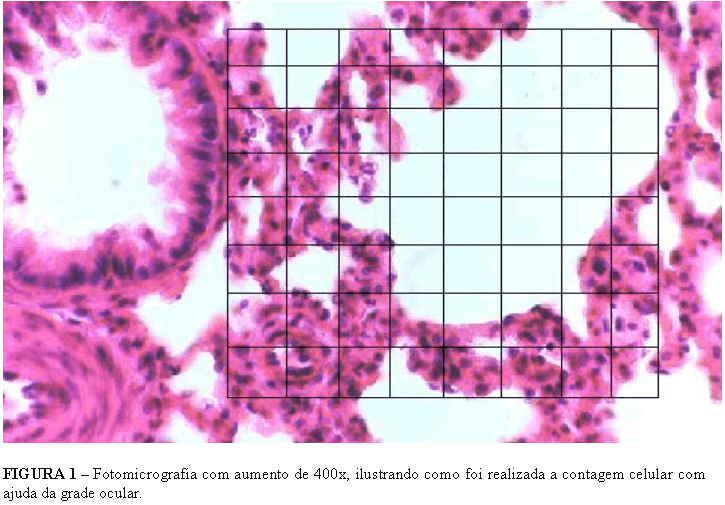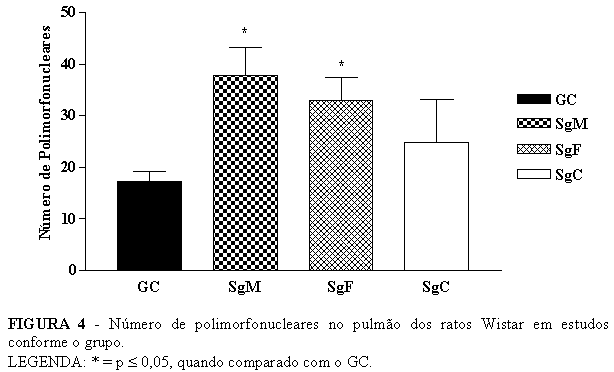PURPOSE: Analyse the effects of post-natal castration in the pulmonary response during inducible sepsis in rats. METHODS: Thirdy tree rats (Wistar) were separated in two groups: Control group (GC): five adults males rats in order to analyse the normal lungs; and Experimental group (GE): twenty eight rats submited to sepsis by ligature and perfuration of the cecum (LPC) divided in tree sub-groups: Males (SgM) nine males rats submited to sepsis by LPC, Females (SgF) nine female rats submited to sepsis by LPC, and Castration (SgC) ten males rats castrated in the 4º day after birth, and submited by sepsis in adult age using LPC. After LPC, all animals were observed until death. A fragment of the right lung in all animals was submited to histologic and morphometric analysis to evaluated the number of polymorphonuclear and mononuclear cells. RESULTS: 50% of the rats in the SgC have a survive time of 24 hs, against 33% of the animals in the SgF and 0% in the SgM. The number of polymorphonuclear cells and mononuclear cells in the lung in SgC and GC, shows no statistic differences, but in animals of SgM and SgF groups, we found an increase of these cells with significant statistic differences. CONCLUSION: Rats in the SgC shows a increase of survival time after LPC and the least alterations in the lung observed.
Castration; Lung; Abdominal Sepsis; Rats




